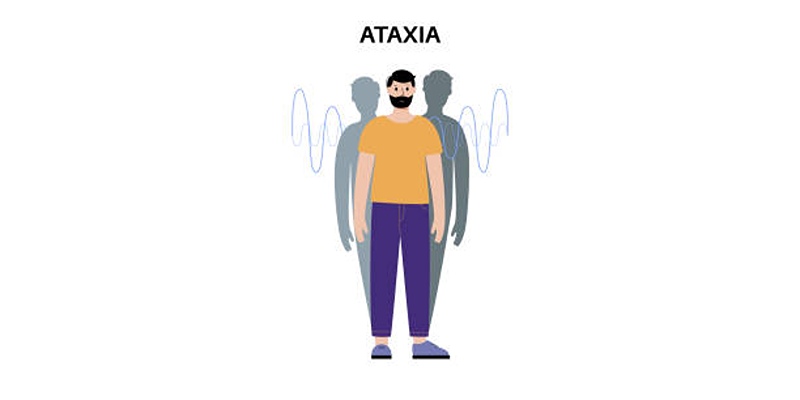Exploring the Referral: Why Your Pain Physician Suggested a Pain Psychologist
Chronic pain can be difficult to control, affecting daily life. Your doctor might refer you to a pain psychologist. If your suffering feels only physical, this can be perplexing. Pain, though, is not limited to the body. It also influences emotions, ideas, and stress levels. Working with you, a pain psychologist develops coping mechanisms. They never claim that suffering is "all in your head." Rather, they enable better management of your discomfort.
Cognitive behavioral therapy (CBT), among other approaches, helps to lessen pain. Psychological help can raise general well-being, happiness, and sleep quality. Psychologists are increasingly included in treatment at many pain clinics. Combining psychological and medical treatment results can be improved. Your doctor wants you to heal; hence, they send you to a pain psychologist.

Pain is More Than Just a Physical Problem
The psyche, as much as the body, suffers from chronic pain. Months or years of pain alters the way the brain handles suffering. Depression, worry, and stress can aggravate a condition. A pain psychologist guides patients in breaking out of this loop. They apply methods to lessen emotional suffering connected with pain. Another effect of pain is motion phobia. Some people stay away from events because they are concerned about aggravating their pain.
Over time, this might weaken muscles and cause more pain. A pain psychologist helps manage these anxieties. They keep patients moving while shielding their bodies. However, another consideration is our perspective on pain. Negative ideas like "This pain will never go away" make one more miserable. A psychologist helps shift these ideas. They impart good approaches to handling suffering. This enhances mental health and could even help reduce pain.
The Role of a Pain Psychologist in Treatment
Regular therapy is not what a pain psychologist does. Working with doctors, they focus on pain management. Their objective is to enable patients to manage their suffering better. They give fresh approaches to dealing with suffering, not discounting it. Cognitive behavioral therapy is one of the most often used methods. CBT aids individuals in breaking bad thought patterns. It also imparts abilities for solving problems and managing pain. Studies of CBT reveal it can lower pain intensity and raise mood.
However, another approach is mindfulness-based stress reduction (MBSR). This method guides patients toward the present. It lessens stress, which helps pain seem less intense. MBSR often includes breathing exercises, meditation, and leisure activities. Additionally, pain psychologists guide patients through biofeedback. This approach helps patients regulate their body's reaction to discomfort. Sensors track breathing, muscle tension, and heart rate. Patients learn to release their bodies to reduce suffering.
Common Myths About Seeing a Pain Psychologist
Seeing a pain psychologist worries some patients that their suffering is not real. It is not true. One actual medical disorder is chronic pain. Psychologists certainly experience suffering. Rather, they offer means to simplify daily life. Another misunderstanding is that therapy always involves constant emotional discussion. Therapy emphasizes solutions even if emotions might influence suffering. Patients pick up particular techniques for improved pain management. Therapy seems to take too much time for some people.
Actually, many pain psychology programs run in just a few weeks. Many times, patients observe changes in a brief period. Finally, some believe that only weak persons should seek psychological assistance. This is also false. Pain psychology is relevant to everyone dealing with persistent pain. Learning better coping mechanisms will help even strong, independent people.

How Does Psychological Treatment Complement Medical Care?
Medications, physical therapy, and injections—among other medical treatments—help alleviate pain. However, they do not always provide perfect relief. Including psychological therapy helps outcomes to be better. Those who use relaxation techniques, for instance, could need less painkillers. People who challenge negative ideas about pain generally find their stress levels reduced. Reducing stress will help, as it might aggravate pain. Pain psychologists also assist in bettering sleep for sufferers. Many times, chronic pain throws off sleep rhythms.
Bad sleep could aggravate pain. Therapy provides strategies to increase rest, thus promoting greater general health. However, another advantage is better partnerships. Pain shapes people's interactions with friends and relatives. One can learn communication abilities in therapy. It enables patients to express their requirements clearly and free from frustration. Usually, a full pain management strategy comprises psychological and medicinal treatment. Results will be better if one works with a psychologist in addition to a doctor.
What Happens in a Pain Psychology Session?
Your initial visit to a pain psychologist comes out as any other medical appointment. They will probe your emotions, daily difficulties, and anguish. Understanding your experience will help you to choose the appropriate approach to assistance. Sessions of therapy could teach pain science. Knowing how pain operates can enable someone to feel more in control. You might also work on relaxing techniques. Often used include deep breathing and guided imagery.
These activities help to lower muscle tension and stress. The psychologist could provide "homework" to hone new abilities. It can involve practicing mindfulness or penning a piece on personal suffering. Generally speaking, patients see a pain psychologist once a week. While some programs run shorter, others go longer. Individual needs determine the length. Therapy does not mean that pain will vanish totally. However, it can enable individuals to feel more in charge and enhance their quality of living.
Conclusion:
Your doctor's recommendation of a pain psychologist comes from their belief it will aid in your recovery. The mind and body suffer from chronic pain. Coping mechanisms taught by psychologists help to lessen suffering. Pain treatment can be better with CBT, mindfulness, and biofeedback, among other approaches. Psychological treatment does not imply your suffering is unreal. It is a legitimate disorder requiring both psychological and medical help. Many people discover relief from a mixed approach. Working with a pain psychologist will help with daily functioning, mood, and sleep. It can also help to lower medication needs. Better pain control starts with accepting psychological help.











